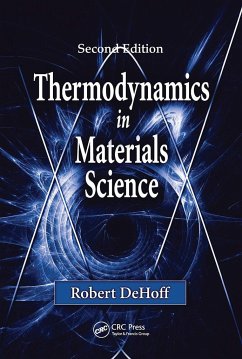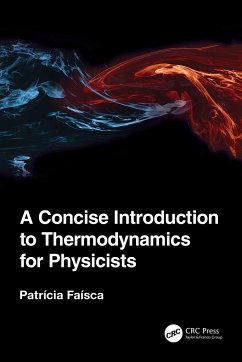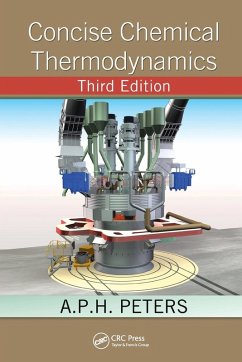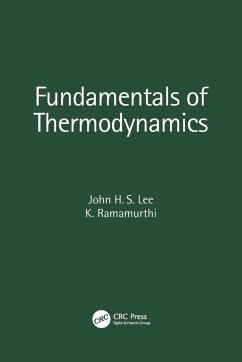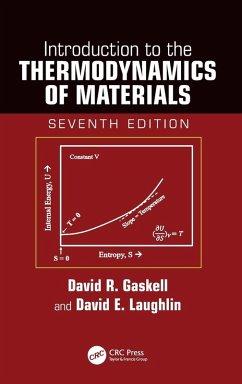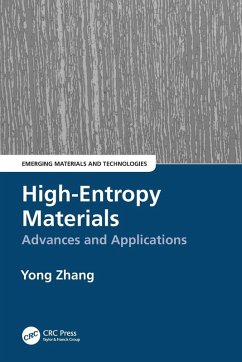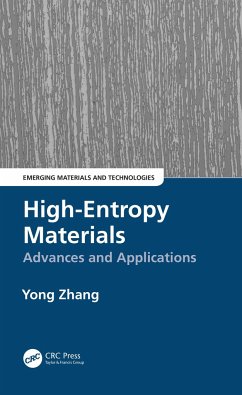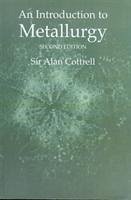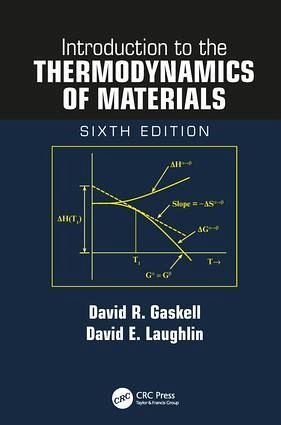
David R. Gaskell (Purdue University, West Lafayette, Indiana, USA)David E. Laughlin (Carnegie Mellon University, Pittsburgh, Pennsylv
Gebundenes Buch
Introduction to the Thermodynamics of Materials
Versandkostenfrei!
Versandfertig in 2-4 Wochen

PAYBACK Punkte
92 °P sammeln!




The book is reorganized into 3 sections. It adds a new chapter linking thermodynamic applications to the study of phase transformations and includes the role of work terms other than PV work along with attendant aspects of entropy, Maxwell equations, and role of such fields on phase diagrams. It features over 50 new chapter problems and figures.
Dieser Artikel kann nur an eine deutsche Lieferadresse ausgeliefert werden.
David R. Gaskell received a B.Sc. in Metallurgy and Technical Chemistry from the University of Glasgow and a Ph.D. from McMaster University. Dr. Gaskell's first faculty position was at the University of Pennsylvania, Philadelphia, where he taught from 1967 to1982 in Metallurgy and Materials Science. He was recruited in 1982 to Purdue University at the rank of Professor where he taught until 2013. During Dr. Gaskell's career he served as a Visiting Professor, National Research Council of Canada, Atlantic Regional Laboratory, in Halifax, Nova Scotia (1975-1976) and as a Visiting Professor, G.C. Williams Co-operative Research Centre for Extraction Metallurgy, in the Department of Chemical Engineering, University of Melbourne (1995). He also held a position during his sabbatical in Australia as a Visiting Scientist, Commonwealth Scientific and Industrial Research Organisation (CSIRO), in Clayton, Victoria. Dr. Gaskell authored the textbooks Introduction to Metallurgical Thermodynamics, Introduction to the Thermodynamics of Materials, and Introduction to Transport Phenomena in Materials Engineering. David E. Laughlin is the ALCOA Professor of Physical Metallurgy in the Department of Materials Science and Engineering of CMU and also has a courtesy appointment on the Electrical and Computer Engineering Department. He was the Principal Editor of Metallurgical and Materials Transactions from 1987 to 2016. David is a graduate of Drexel University (1969) and the Massachusetts Institute of Technology (1973). He is a Fellow of TMS, an Honorary member of AIME, and a Fellow of ASM International. He is also the recipient of several CMU awards for teaching and research excellence and a Distinguished Scientist of the TMS Electronic, Magnetic & Photonic Materials Division. He has authored more than 400 technical publications in the field of phase transformations, physical metallurgy, and magnetic materials, and has edited or coedited seven books including the fifth edition of Physical Metallurgy, and has been awarded 12 patents.
Produktdetails
- Verlag: Taylor & Francis Inc
- 6 ed
- Seitenzahl: 694
- Erscheinungstermin: 18. August 2017
- Englisch
- Abmessung: 242mm x 164mm x 42mm
- Gewicht: 1162g
- ISBN-13: 9781498757003
- ISBN-10: 1498757006
- Artikelnr.: 49606723
Herstellerkennzeichnung
Libri GmbH
Europaallee 1
36244 Bad Hersfeld
gpsr@libri.de
Für dieses Produkt wurde noch keine Bewertung abgegeben. Wir würden uns sehr freuen, wenn du die erste Bewertung schreibst!
Eine Bewertung schreiben
Eine Bewertung schreiben
Andere Kunden interessierten sich für


